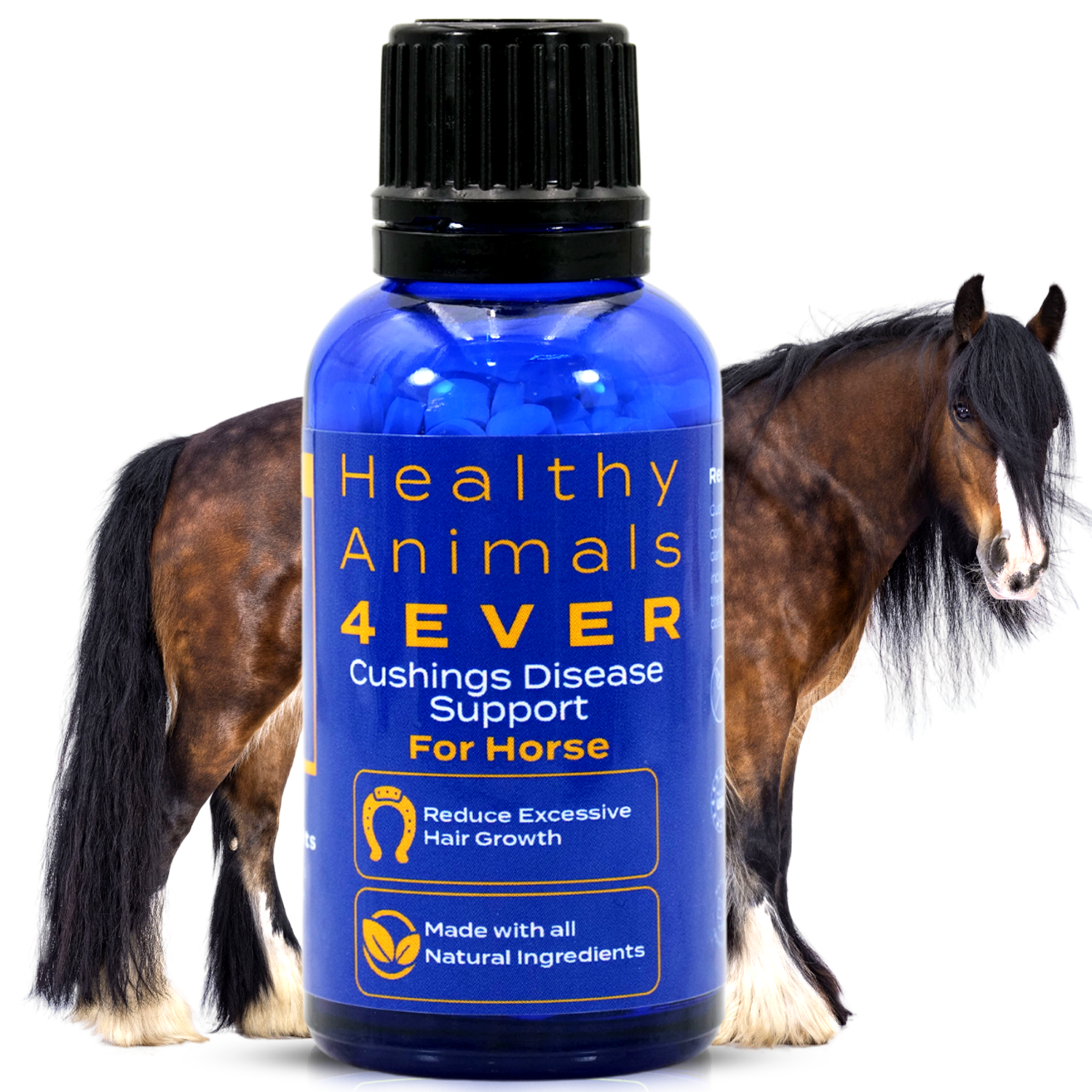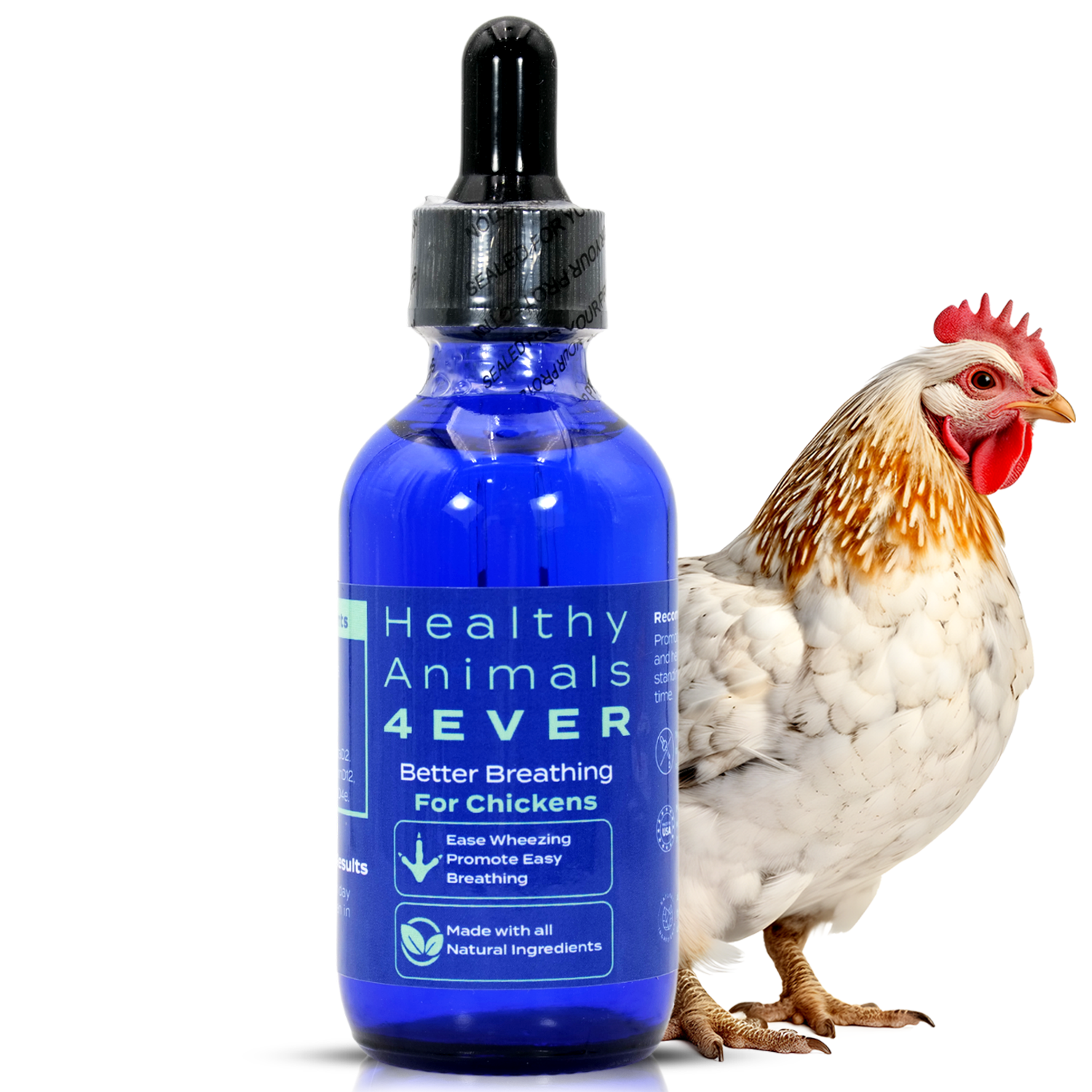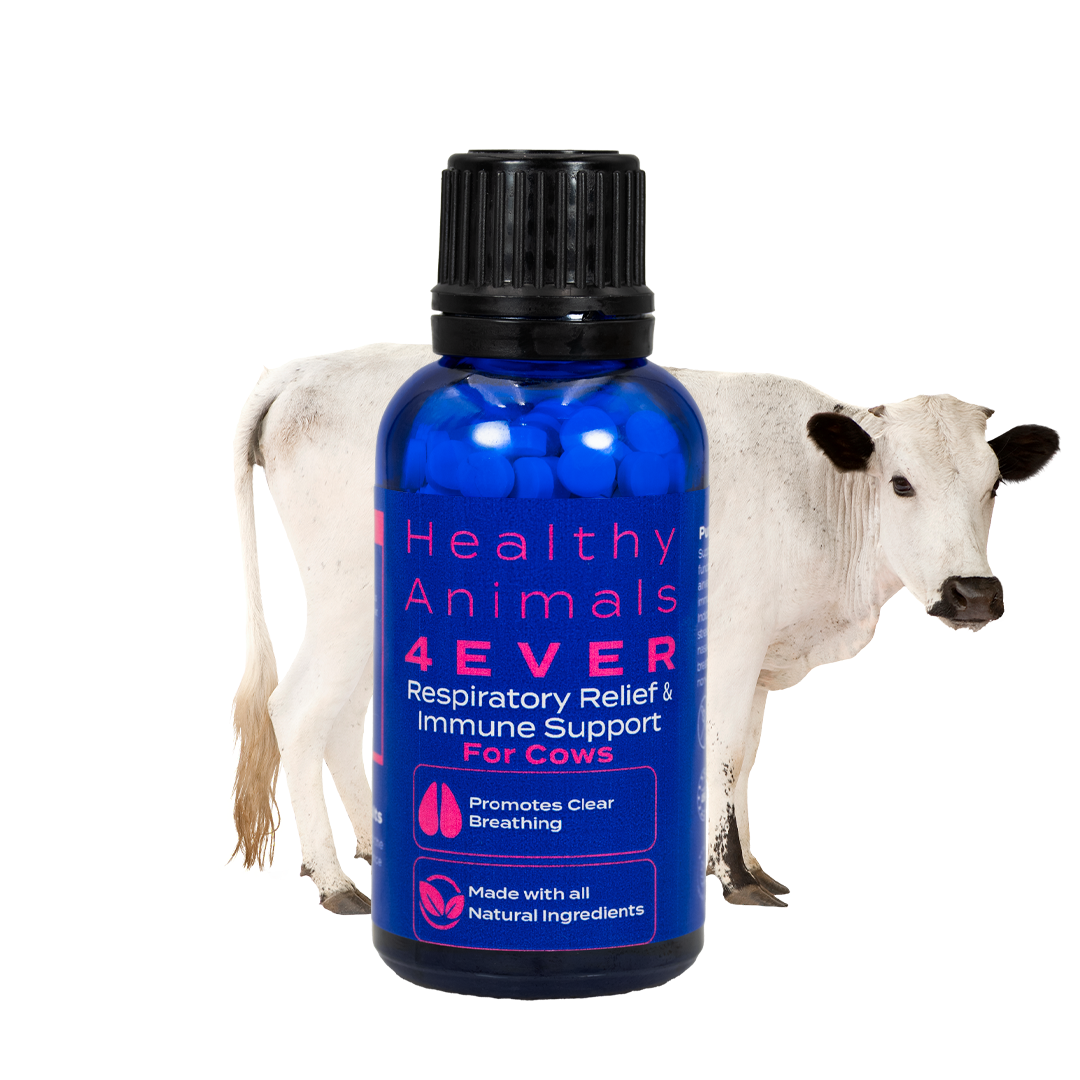Natural Remedies for Preventing and Treating Reptile Parasites Safely
Reptiles are fascinating animals that require special care to stay healthy. One aspect of their care that is often overlooked is the control of parasites; these pests can make your reptile sick and even lead to severe illness or death. That's why keeping reptile parasites under control is so important.
While conventional chemical treatments can be effective, they often have side effects that might harm your pet over time. Some chemicals can be harsh on a reptile's sensitive system, causing stress or damaging their organs. Natural remedies offer a gentler, safer approach to your pet's parasite-free.
Using natural methods helps prevent these pests from becoming a problem and supports your reptile's overall well-being. With the right combination of habitat care, natural treatments, and a healthy diet, you can keep parasites at bay and ensure your reptile stays healthy without relying on harsh chemicals.

Common Types of Parasites in Reptiles
Reptiles can host a variety of parasites, and they generally fall into two main categories: internal parasites and external parasites. Both types can cause serious health issues if not treated properly, so it's essential to understand what you're dealing with.
Internal Parasites
These parasites live inside your reptile’s body, usually in the digestive system. Common types include nematodes, coccidia, and protozoa.
Nematodes (roundworms) are tiny worms that can infect your reptile's intestines. If your pet is infected, you might notice weight loss, a lack of appetite, or diarrhea. Nematodes are common in many reptiles, especially those that have been caught in the wild.
Coccidia is a microscopic parasite that can lead to coccidiosis, a disease that affects the reptile's digestive tract. Symptoms can include diarrhea, dehydration, and a generally weakened state. It’s more common in young or stressed reptiles and can spread easily in dirty enclosures.
Protozoa are single-celled organisms that can cause similar digestive problems. Like coccidia, protozoa often lead to issues like diarrhea, lethargy, and weight loss.
External Parasites
These parasites live on the surface of the reptile’s skin and are easier to spot than internal ones. The most common types are mites and ticks.
Mites are tiny creatures that feed on your reptile’s blood and can quickly multiply, leading to severe infestations. Mites are usually seen around the eyes, mouth, and skin folds. If your reptile is constantly soaking in water or rubbing against objects, it might be trying to get relief from these pests. Mites can weaken the reptile’s immune system and cause irritation or even anemia in severe cases.
While not as common as mites, ticks can be a problem for some reptiles, especially those that live outdoors. Ticks are larger than mites and attach themselves to the skin to feed on blood. If not removed properly, they can transmit diseases and cause infections.
Both types of parasites, internal and external, can seriously affect your reptile’s health. That’s why it’s important to regularly check for signs of infestation and take preventive measures to keep your pet safe. By understanding these common parasites, you can better protect your reptile and act quickly if you notice any symptoms.
Risks and Signs of Parasitic Infestation
Parasites can cause a range of problems for reptiles, from mild discomfort to life-threatening illness. Understanding the risks and learning how to spot the signs of an infestation early can make a big difference in keeping your reptile healthy.

Risks of Parasite Infestation
When parasites invade, they can affect your reptile’s body in several ways. Internal parasites like worms or protozoa can lead to digestive issues, weakening the immune system and causing malnutrition. These parasites feed off your reptile's nutrients, so your pet may struggle to absorb the necessary vitamins and minerals. This can lead to long-term health problems if the parasites are left untreated.
External parasites, such as mites and ticks, feed on your reptile’s blood. This can cause skin irritation, anemia, and stress. In severe cases, an overwhelming infestation can lead to secondary infections or even death, especially if the reptile is young, sick, or already stressed.
Parasites also put your reptile at risk of developing other illnesses. When the immune system is constantly attacked by parasites, your pet becomes more vulnerable to bacterial or fungal infections. In addition, some external parasites, like ticks, can spread diseases that can be very difficult to treat.
Common Signs of Parasite Infestation
Reptiles are skilled at hiding signs of illness, but some apparent symptoms can indicate a parasitic problem. Keeping a close eye on your reptile's behavior and appearance can help you catch infestations early.
Weight loss: If your reptile is losing weight despite eating normally, this could be a sign of internal parasites. They may be stealing the nutrients your reptile needs to stay healthy.
Diarrhea or abnormal stools: Frequent diarrhea or stools that look different than usual may be a red flag, especially for internal parasites. In some cases, you may even see worms in the stool.
Lethargy: A reptile that is less active or seems tired all the time might suffer from parasites. This could be due to the body's weakened condition from malnutrition or blood loss.
Loss of appetite: A reptile that suddenly refuses food may be dealing with an internal parasite problem. Parasites can make the digestive system feel uncomfortable, discouraging your pet from eating.
Soaking or excessive rubbing: If your reptile is spending more time than usual soaking in its water dish or rubbing against rough surfaces, it could be trying to relieve the irritation caused by mites or ticks.
Visible parasites: For external parasites like mites and ticks, you may notice tiny dark spots around your reptile’s eyes, mouth, or skin folds. Ticks are larger and easier to spot, often attaching to the skin.
By recognizing these signs early, you can take action before the infestation gets worse. Regular health checks and good enclosure hygiene can help prevent parasites from becoming a serious problem, but knowing what to look for is key to catching issues early.
Benefits of Natural Remedies Over Chemical Treatments
When it comes to treating parasites in reptiles, many pet owners automatically turn to chemical treatments because they’re commonly used and can work fast. But these chemicals can be harsh on your reptile's body, especially with repeated use. Natural remedies offer a gentler and often safer alternative, and they can still be highly effective in both preventing and treating parasites.
The Downsides of Conventional Chemical Treatments
Chemical treatments, like dewormers or mite sprays, are widely available and often prescribed by vets for serious infestations. However, they come with some potential risks.
Reptiles are sensitive creatures, and some chemicals can be too strong for them. These products might eliminate the parasites but can also stress your reptile's system, especially their liver and kidneys. After chemical treatments, reptiles can experience side effects like lethargy, appetite loss, or digestive upset. In some cases, prolonged use of chemicals can weaken the immune system, making your reptile more vulnerable to other illnesses.
Impaction for Reptiles is a natural remedy that supports reptile digestive health, preventing and alleviating impaction by promoting smooth digestive flow and easing blockages with safe, gentle ingredients.
Like in other animals, reptile parasites can become resistant to chemical treatments over time. This means that future infestations might not respond as well to the same products, requiring stronger (and potentially more harmful) chemicals to be effective.
Why Choose Natural and Gentle Approaches?
Natural treatments can help prevent and treat parasites without the harsh side effects that often come with chemicals, as they work with your reptile’s body rather than against it. Many herbs, oils, and other natural ingredients help strengthen your pet’s immune system while gently targeting parasites. This makes it easier for your reptile to recover and thrive.
A natural approach isn't just about treating infestations; it's also about prevention. Natural remedies like herbs, oils, and supplements can be used regularly to keep parasites at bay, reducing the chances of an infestation in the first place. Since natural remedies tend to be milder, they are less likely to stress your reptile's organs, like the liver or kidneys, which can be affected by repeated chemical use.
While natural remedies may not always act as fast as chemical options, they are often safer for long-term use and can help create a healthier environment for your pet. They're beneficial for mild infestations or as part of a prevention plan, helping keep your reptile parasite-free without the risk of harmful side effects.
Nutritional Deficiences for Reptiles is a natural formula that addresses nutrient deficiencies in reptiles by providing minerals and boosting nutrient absorption. It supports overall health, growth, and well-being for all species.
Preventative Approaches for Parasite Control
Preventing parasites in reptiles is all about keeping their environment clean and supporting their immune systems. By taking a proactive approach, you can reduce the risk of infestations and keep your reptile healthy without needing harsh chemicals.

Proper Habitat Maintenance
A clean environment is one of the best ways to prevent parasites. Parasites thrive in dirty enclosures, so keeping your reptile’s habitat clean and well-maintained is key.
Clean your reptile's enclosure frequently, removing uneaten food and feces and shedding skin. These can attract pests and create an environment where parasites can flourish.
If you're using natural substrates like soil, sand, or wood chips, replace them regularly to prevent parasite buildup. Spot-clean daily and deep-clean the entire enclosure at least once a month.
Parasites often thrive in warm, moist environments. Ensure you're maintaining the correct temperature and humidity levels for your reptile species to avoid creating ideal conditions for parasites.
Diet and Supplements to Boost the Immune System
A strong immune system is essential in helping your reptile fight off parasites naturally. A balanced diet with proper nutrition can go a long way in supporting their health.
Feed your reptile a species-appropriate diet with plenty of variety. A healthy diet ensures they get all the vitamins and nutrients needed to stay strong. For insect-eating reptiles, gut-loading insects with nutritious foods before feeding them to your reptile is a great way to provide extra nutrients.
Consider adding immune-boosting supplements, such as calcium, vitamins, and probiotics. Probiotics help maintain gut health, which can be especially important in preventing internal parasites.
Focusing on habitat cleanliness and a balanced diet can create a healthier environment for your reptile and help prevent parasites from becoming a problem. Regular prevention is easier and safer than treating a full-blown infestation, and natural methods offer a gentle approach to keeping your reptile parasite-free.
Treatments for Existing Infestations
If your reptile is already dealing with a parasite infestation, there are several natural treatments you can try to help them recover without relying on harsh chemicals. While these homeopathic remedies can be gentle and effective, it’s important to monitor your reptile closely and consult a vet if the infestation is severe or not improving.

Herbal Remedies for Internal Parasites
Internal parasites like worms can be tricky to treat, but some herbs have natural properties that can help eliminate them.
Wormwood is effective against worms and other internal parasites. It can be found in powdered form or as a tincture, but make sure to use it sparingly and always under a vet’s guidance. It can be toxic in large doses, so be cautious with its use.
Black walnut is another herbal remedy known for its anti-parasitic effects. It’s often used to target worms in both humans and animals. As with wormwood, be mindful of the dosage and check with a vet before giving it to your reptile.
Natural Treatments for External Parasites
For external parasites like mites or ticks, there are several natural treatments that can help clear up infestations without harming your reptile.
Neem oil is a popular natural remedy for getting rid of mites. You can mix a small amount of neem oil with water and lightly spray your reptile's skin and enclosure. Ensure the solution is well-diluted, as reptiles are sensitive to strong substances. Neem oil can help suffocate and repel mites while gently treating your pet.
Diatomaceous earth is a fine powder made from the fossilized remains of tiny aquatic organisms. It works by dehydrating parasites like mites and ticks when they come into contact with it. It's safe to sprinkle a small amount in your reptile's enclosure but avoid applying it directly to your pet's skin, as it can be too drying.
Due to its acidity, apple cider vinegar can help repel mites. You can create a diluted solution by mixing apple cider vinegar with water and spraying it around the enclosure or using it to wipe down surfaces. Like neem oil, ensure the solution is well-diluted and avoid applying it directly to your reptile’s skin to prevent irritation.
Homeopathic Remedies
Here are a few common homeopathic remedies that may help with parasite control and support your reptile’s overall health:
Sulfur is often used to treat skin-related issues, and it is beneficial if your reptile has a mite infestation. It can help with skin irritation, itching, and redness caused by external parasites.
Cina (Artemisia cina) is commonly used to treat internal parasites such as roundworms. It can help manage symptoms of parasitic infections, including restlessness and digestive disturbances.
Calcarea Carbonica is often recommended for reptiles that are prone to parasitic infections, especially those that are sluggish or seem to be growing weaker due to worms or other internal parasites.
Natural remedies can be a safe and effective way to treat mild to moderate infestations. However, always start with small amounts and observe your reptile's reaction. Some herbs or oils can be too intense for certain reptiles, so it's important to introduce these treatments carefully. If the infestation isn't improving or your reptile's health worsens, don't hesitate to contact a vet for further advice.
Our Reptile Protection Formula
Our homeopathic defense solution offers a gentle yet powerful way to support your reptile’s health. The formula, enriched with ingredients like SantonineD6, CinaD6, and SiliceaD6, is crafted to work harmoniously with your reptile’s body, helping to defend against harmful invaders naturally.
Parasites for Reptiles is a natural remedy formulated to defend against harmful invaders in reptiles.
Benefits
This holistic remedy offers comprehensive support for your reptile’s health and vitality, targeting both internal and external threats. By helping your reptile’s system defend against harmful invaders such as worms and mites, it promotes overall well-being and longevity. Additionally, it boosts digestive health, ensuring your reptile can maintain optimal weight and energy levels. The formula is easy to administer, reducing the stress of care, and is crafted specifically for reptiles, ensuring gentle, safe treatment without the use of harsh chemicals. Choosing this product means opting for a natural and effective solution that prioritizes your reptile’s health and comfort.
The Bottom Line
Keeping your reptile free from parasites is an important part of ensuring its health and comfort. Focusing on prevention, such as maintaining a clean environment and providing a balanced diet, can reduce the risk of infestations.
If parasites do show up, plenty of natural remedies are available, from herbal treatments to homeopathic solutions, that can gently help your reptile recover without the harsh side effects of chemical treatments. Constantly monitor your pet's behavior and health; don't hesitate to consult a vet if needed. With the right care, you can keep your reptile happy and thriving.











